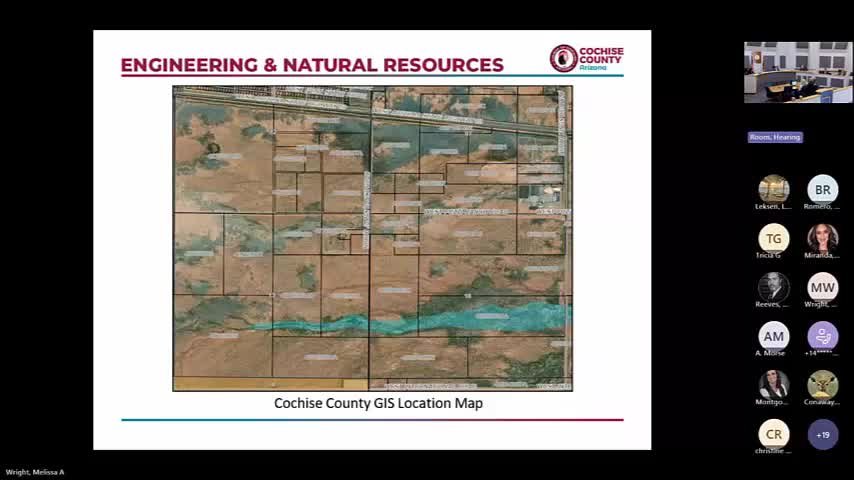Building an Immigration Court Oversight Program in Memphis
In Memphis, a nonprofit law firm focused on immigration rights is collaborating with local religious leaders to create an oversight initiative for immigration courts. This effort aims to address the current practices by federal prosecutors who expedite deportations, often leading to immigrants being arrested during court hearings.
Advocates of Immigrant Rights (AIR) is working toward developing a comprehensive immigration court observation program with volunteers from the clergy. Executive Director Casey Bryant has expressed hopes that this initiative will provide crucial support for immigrants navigating the legal system.
The firm provides affordable legal assistance to individuals across Tennessee, Northern Mississippi, Arkansas, and sometimes Kentucky. As of late July, Memphis courts reported a staggering 126,623 pending immigration cases, according to an organization that compiles federal data.
This spring, new legal strategies emerged across the country. If immigrants appear for their scheduled court dates after being released at the border, some prosecutors are moving to dismiss their cases. This puts them at risk for immediate deportation—a method sometimes referred to as rapid removal.
A notice from the Department of Homeland Security earlier this year outlined a shift towards maximizing expedited removals, although a recent class-action lawsuit involving multiple immigrants raised concerns over these practices.
A recent statement from the Department of Homeland Security indicated a reversal of policies from the previous administration, aiming to crack down on the “catch-and-release” approach that allowed many undocumented immigrants to remain in the country.
Bryant noted that many immigrants face court processes alone, lacking legal representation. He highlighted the troubling reality that numerous individuals leave immigration courts without any witnesses, other than court staff, to ensure fairness.
Father Juan Antonio “Tony” Romo, a priest serving a predominantly Hispanic congregation in Memphis, has witnessed the fear within his community as members face arrests and deportations. He recently attended an immigration court hearing inspired by a news article about the Bishop of San Diego, feeling compelled to take action.
Experiences in Immigration Court
Reflecting on his past experiences, Romo recalled an informative trip to the border with other clergy members, where they followed the challenging routes immigrants take. He described disturbing scenes, where judges swiftly ordered deportation without regard for individual circumstances.
Romo is passionate about social justice and believes that the issues his community faces extend beyond merely spiritual matters. He expressed a personal connection to the immigrant experience, having moved to the U.S. for missionary work rather than for a better life. Yet, he recognizes that to many, he fits the definition of an immigrant.
Currently, his experience at the Memphis Immigration Court presented a different scenario. Most of the immigrants he encountered were without legal representation, yet he noticed translators were present. Romo described one judge as calm and empathetic, noting that they addressed the fears of those awaiting their hearing.
He was encouraged that no arrests took place during his visits and that the judges were requesting additional documentation rather than immediate deportations. This offered a glimmer of hope in what can often be a harsh environment.
Romo introduced himself to the waiting immigrants and offered his support, which seemed to bring them comfort. He noted how meaningful it was just to be there, even if he had no formal power to change their outcomes.
Bryant envisions a system where there are always observers in courtrooms to witness proceedings and decisions, emphasizing the importance of having friendly faces in what can be a dehumanizing process.
Future Plans for Oversight
Looking ahead, establishing a formal court oversight program will require recruiting more volunteers and gaining the court’s administration’s support. AIR is collaborating with various organizations, including Catholic charities, to strengthen this initiative.
Training will be essential for volunteers to familiarize themselves with court protocols, and Bryant believes that securing official approval from the immigration court is vital for the program’s success.
While many cities have implemented similar programs, there’s currently no formal mechanism in place for establishing one in Memphis. Bryant is awaiting feedback from court officials regarding the proposal.
Successful court-watching initiatives in other cities have highlighted the importance of these efforts in holding the legal system accountable and raising awareness about immigrants’ experiences.
In his efforts, Romo has assured his parishioners that he will attend immigration hearings for those who desire his presence, reinforcing his commitment to serve and support the vulnerable. Bryant believes that witnessing the court process firsthand can challenge misconceptions about how immigrants are treated in the legal system.
“If people see the treatment in those courts, it’s likely to change their perspective,” Bryant concluded.






